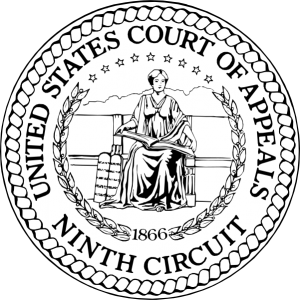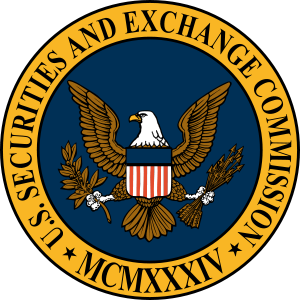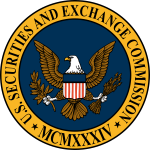Whistleblower Law Blog
Ninth Circuit Reverses District Court Dismissal in Corinthian
In U.S. ex rel. Lee v. Corinthian Colleges, The United States Court of Appeals for the Ninth Circuit reversed the District Court’s holding dismissing whistleblowers Nyoka Lee and Talala Mshuja’s False Claims Act complaint alleging Corinthian Colleges violated the Higher Education Act’s (HEA) ban on recruiter-incentive compensation. Under the HEA, the federal government distributes funds to assist with the costs of secondary education. In order to qualify for these funds, institutions must comply with a recruiter-incentive ban, which prohibits schools from providing any commission, bonus, or other incentive to recruiters based on the number of students they enroll.
Corinthian Colleges, a public company headquartered in Orange County, California, operates for-profit vocational schools throughout the United States. On March 26, 2007, the whistleblowers filed a qui tam action on behalf of the United States government against Corinthian. They allege that Corinthian, who receives billions of dollars from the federal government under the HEA, had fired recruiters and paid other recruiters bonuses amounting to 2.5% to 10% of their base pay based on the number of students they recruit. The complaint also alleges that Corinthian falsely certified that it was in compliance with the HEA recruiter compensation prohibitions.
The case is remanded to the District Court.
NWC, NELA, and The Employment Law Group® Submit Brief in Support of SOX Whistleblowers Abroad
The National Whistleblower Center, National Employment Lawyers Association, and The Employment Law Group® law firm filed an amicus brief in Villanueva v. Core Laboratories NV, a case before the Department of Labor Administrative Review Board (ARB). Our amicus brief argues that whistleblowers at overseas subsidiaries remain protected under the Sarbanes-Oxley Act (SOX) when the protected activity includes emails to the U.S., and the decision to fire the whistleblower is made in the U.S.
Whistleblower William Villanueva was CEO of Saybolt Columbia, a subsidiary of Core Laboratories NV – a publicly traded company based in Houston, Texas. In 2008, Villanueva warned executives in Houston that other executives were engaging in illegal tax schemes. After Villanueva refused to sign a false tax return, Core fired him. The Sarbanes-Oxley Act prohibits publicly traded companies and their subsidiaries from retaliating against an employee that reports wrongdoing related to:
- Mail, wire, bank, or securities fraud;
- Fraud against shareholders; or
- Violations of any Securities and Exchange Commission rule or regulation.
Related articles
- TELG Principal Quoted in Law360 on Landmark ARB Decision for SOX Whistleblowers (employmentlawgroupblog.com)
- S.E.C. Recoups Bonus of Former Beazer Executive(dealbook.nytimes.com)
- Summary Decision Overturned for Whistleblower in Failure to Hire Case(employmentlawgroupblog.com)
CFTC Adopts Favorable Rules for Whistleblower Reward Program
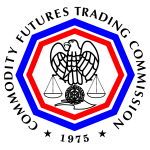
Following the lead of the Securities and Exchange Commission (SEC), the U.S. Commodity Futures Trading Commission (CFTC) adopted finalized rules for its new Whistleblower Reward Program that heavily favor whistleblowers. Importantly, the rules do not require whistleblowers to first report wrongdoing to their employer; instead whistleblowers may report wrongdoing directly to the CFTC.
The CFTC is an independent agency that regulates commodity futures and option markets in the United States and protects market participants against fraud, manipulation, and abusive trading practices.
Congress and the President established the new SEC and CFTC Whistleblower Programs when they enacted the Dodd–Frank Wall Street Reform and Consumer Protection Act (Pub.L. 111-203) on July 21, 2010. Under the Dodd-Frank Act, the SEC and CFTC are both required to reward whistleblowers who provide original information to the government with between 10% and 30% of the amount recovered by the government. To learn more about the CFTC Whistleblower Reward Program, click here.
The Dodd-Frank Act also prohibits employers from retaliating against whistleblowers. Those whistleblowers who are retaliated against may sue their employer to:
- Be reinstated to their former position;
- Recover the wages in the form of back pay with interest;
- Recover compensatory damages; and
- Recover attorney fees and litigation costs.
Related articles
- SEC Adopts Favorable Rules for Whistleblowers
- SEC Whistleblower Reward Program Goes into Effect August 12
- SEC’s whistleblower program takes effect
- CFTC Allows Whistleblowers to Collect a Free
Boeing Company Settles False Claims Act Suit for $2 Million
The Boeing Company has agreed to pay $2 million to resolve claims that the company overbilled the government from 2002 to 2005 for work done at a San Antonio Plant. According to the suit, brought under the qui tam provisions of the False Claims Act, Boeing inflated its estimates for the number of hours required to do non-routine repairs and maintenance on the Air Force KC-135 tankers. The suit also alleged that the company manipulated its billing records to inflate the number of workers that maintained the Air Force tankers. The whistleblower who exposed the fraudulent billing practices is entitled to a share of 15 percent to 30 percent of the $2 million settlement. For information aboutThe Employment Law Group® law firm’s False Claims Act practice, clickhere.
SEC Whistleblower Reward Program Goes into Effect August 12
The SEC Whistleblower Reward Program signed into law last year under theDodd-Frank Wall Street Reform and Consumer Protection Act is effective as from today, August 12, 2011.
As the U.S. economy continues to struggle, compounded by a lowered Standard & Poor’s rating that sent the New York Stock Exchange and European markets spiraling, corporate whistleblower cases are likely to increase as corporations try to tighten budgets and cut costs.
The SEC will now begin rewarding those whistleblowers who come forward with information regarding securities laws violations at public companies.
Related articles
- SEC Adopts Favorable Rules for Whistleblowers(employmentlawgroupblog.com)
- SEC adopting new system of whistleblower awards(seattletimes.nwsource.com)
- SEC whistleblower chief pushes back at critics (marketwatch.com)
TELG Principal Attorney Responds to OSHA Funding Request
Law360 quoted Nicholas Woodfield, a principal attorney at The Employment Law Group® law firm, regarding the U.S. Occupational Safety and Health Administration’s request for an additional $6.1 million to fund 45 more investigators for its whistleblower programs. Mr. Woodfield stated:
More efficient investigations are among OSHA’s goals, but unless the workload for investigators gets lighter, there are still going to be substantial delays.
You can have the greatest systems in place, but if the demand for them is so great that you have to stand in line for a couple of years, you’re effectively denying the benefits to the populace.
OSHA’s commitment to bolstering investigator training is a positive sign, however, and could translate to a more consistent application of the law to cases.
OSHA is responsible for administering 21 whistleblower laws that prohibit employers from retaliating against employees who report violations of workplace safety, airline, commercial motor carrier, consumer product, environmental, financial reform, food safety, health care reform, nuclear, public transportation, railroad, and securities laws.
Summary Decision Overturned for Whistleblower in Failure to Hire Case
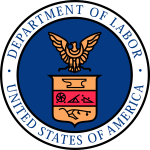
In Hasan v. Enercon Services, Inc., the Department of Labor’s Administrative Review Board (ARB) overturned a summary decision order in favor of whistleblower Syed Hasan who alleges that Enercon Services, Inc. refused to hire him because he is a whistleblower.
Hasan is a structural engineer who was previously discriminated against by his former employer, American Electric Power Company, for reporting unsafe practices at the D.C. Cook Nuclear Plant to the Nuclear Regulatory Commission.
For Hasan to prevail on his whistleblower complaint under the Energy Reorganization Act of 1978 (ERA), he must show that his whistleblowing while at his former employer was a contributing factor in Enercon’s decision to not hire him. Evidence of inconsistencies in an employer’s reasons for not hiring a whistleblower can support a finding of pretext by the employer.
The ARB ruled in Hasan’s favor, stating a summary decision was improper given the existence of a genuine factual dispute that requires an evidentiary hearing:
Hasan’s claim is not based on one application to one advertisement for one job vacancy whereupon his application was filed away and forgotten, as likely occurs to thousands of applicants each day across the county. Rather, Hasan’s claim is that he repeatedly applied for positions at Enercon, and Enercon refused to hire him at any point at least partly due to his whistleblower activities. Hasan’s letters to Enercon expressed that he was willing to work for Enercon “at any place, for any shift and for any salary” that Enercon deemed was reasonable. Hasan sent more than one letter making this statement. He sought employment with Enercon numerous times over the course of two years. In a letter dated February 5, 2003, Enercon expressly told Hasan that it would keep his resume “on file and hope to identify a work opportunity in the future.” Enercon admittedly hired more than a dozen civil/structural engineers after its February 5, 2003 letter to Hasan. So Hasan’s claim is that Enercon repeatedly rejected him, and he believes it was because of his whistleblowing activities.
Recognizing Hasan’s claim as a claim of repeated rejections over a two-year period, there are sufficient documents and facts to allow (but not require) a factfinder to believe that Enercon’s proffered reasons are pretext or that Hasan’s protected activity was a contributing factor in Enercon’s failure to hire Hasan. Enercon asserts that: (1) the jobs in its advertisements never materialized; (2) the advertisements were used to find former Scientech engineers; (3) the job vacancies were for the Germantown office; or (4) the advertisements never resulted in any hires. Yet, the advertisements on their faces were for “immediate opportunities” throughout 2003 and 2004 and expressly described the “available positions.” Enercon’s February 5, 2003 letter expressly told Hasan he would be considered for future opportunities. The existence of future vacancies was repeatedly confirmed by the dozen engineers hired in 2003 and 2004. The advertisements only expressed a preference for “local candidates” and had no reference to Scientech employees. This is not to say that Enercon’s reasons will not prove to be true or legitimate. However, to choose Enercon’s assertions in its motions over its contradictory advertisements is to engage in factfinding without an evidentiary hearing. These factual contradictions, even though created by Enercon’s own choices, must be resolved in an evidentiary hearing….
(citations omitted).
OSHA Announces Measures to Improve Whistleblower Protection Program

The U.S. Department of Labor’s Occupational Safety and Health Administration (OSHA) announced in a press release significant improvements to its Whistleblower Protection Program. OSHA Assistant Secretary Dr. David Michaels explained:
The ability of workers to speak out and exercise their legal rights without fear of retaliation is crucial to many of the legal protections and safeguards that all Americans value. The new measures will significantly strengthen OSHA’s enforcement of the 21 whistleblower laws that Congress charged OSHA with administering. . . . OSHA is committed to correcting the issues brought to light by the GAO report and our own review.
The Employment Law Group® requested some of the very measures being adopted. Significant changes to OSHA’s Whistleblower Protection Program include:
- OSHA’s Whistleblower Protection Program will report directly to the assistant secretary instead of being housed in the Directorate of Enforcement.
- OSHA will hold a national whistleblower training conference for all whistleblower investigators.
- OSHA will issue a new edition of the Whistleblower Investigations Manual that will include the new laws enacted since its last revision in 2003.
- OSHA’s audit program will be strengthened and expanded to ensure that complaints are properly handled.
Whistleblower advocates applaud OSHA for adopting the necessary reforms to strengthen protection for employees who report violations of workplace safety,airline, commercial motor carrier, consumer product, environmental, financial reform, food safety, health care reform, nuclear, public transportation, railroad, and securities laws.
Related articles
- TELG Principal Quoted in Law360 on Landmark ARB Decision for SOX Whistleblowers
- U.S. DOL ALJ Reinstates Truck Driver who Refused to Violate DOT Regulations, Awards $46k in Damages
- DOL ARB Clarifies Broad Scope of Protected Conduct for SOX Whistleblowers in Sylvester v. Parexel International LLC
Third Circuit Overturns Lower Court in Favor of Whistleblower Who Exposed Illegal Medicare Kickbacks
On June 30, 2011, the United States Court of Appeals for the Third Circuit ruled in United States ex rel. Wilkins v. United Health Group overturned the decision of the lower court and held in favor of whistleblowers Charles Wilkins and Daryl Willis. The whistleblowers allege that United Health Group (UHG) provided kickbacks to those physicians who switched patients to UHG’s services in violation of the Medicare Anti-Kickback Statute. This statute provides that whoever knowingly and willfully pays a kickback in return for a referral for their health care services (paid for by a Federal Health Care program) are guilty of a felony.
Whistleblowers Wilkins and Willis began employment with United Health Group in 2007, Willis as a general manager for Medicare/Medicaid marketing and sales and Wilkins as a sales representative. In April 2008, United Health terminated Wilkins’ employment in reaction to his complaints concerning what he perceived were United Health’s illegal practices. Similarly, at some point during 2008, United Health, after demoting Willis for his conduct in making complaints to his supervisors about what he perceived were United Health’s illegal practices, went further and terminated his employment.
On July 10, 2008, Wilkins and Willis filed a qui tam action under the Federal False Claims Act (FCA) alleging that United Health Group also violated the FCA by offering physicians illegal kickbacks and then charging the federal government’s Medicare program for services.
Under the False Claims Act, a private individual with knowledge of fraud committed against the federal government may sue on behalf of the government to recover losses caused by the fraud. To encourage whistleblowers to come forward and expose fraud on the government, the FCA awards whistleblowers 15% to 30% of the government’s recovery. The FCA also prohibits any action taken by an employer which has a negative effect on the terms, conditions, or privileges of employment of the whistleblower. This includes termination, demotion, suspension, harassment, and other forms of retaliation.
The Third Circuit, adopting the majority viewpoint among the Federal Appellate Circuits, applied the implied certification theory of liability under the FCA. This theory of liability is favored by whistleblower advocates because companies defrauding the government can be liable under the FCA without having explicitly stated they were in compliance with applicable laws such as the Medicare Anti-Kickback Statute. This ruling is a victory for whistleblowers who report corporate or government agency fraud.
U.S. DOL ALJ Reinstates Truck Driver who Refused to Violate DOT Regulations, Awards $46k in Damages

On May 24, 2010, Mr. Joe Oglesby, a former United States Marine, filed a complaint with the U.S. Department of Labor (DOL), alleging that his former employer, Foresight Transportation Group (Foresight), pressured truck drivers to work more hours than safely allowed and then to falsify their log books to avoid suspicion. Overturning the findings of a U.S. DOL investigation, Administrative Law Judge (ALJ) Richard Morgan held that Oglesby’s refusal to work more hours than permitted or to falsify records was a “protected activity” under the whistleblower provisions of the Surface Transportation Assistance Act of 1982 (STAA) and Oglesby’s protected activity was the reason Foresight fired him. The ALJ ordered Oglesby to be immediately reinstated and awarded him $26k in damages, including another $20k in punitive damages.
Joe Oglesby communicated to the U.S. Department of Labor that Foresight fired him for pointing out violations and subsequently refusing to drive his truck in violation of the U.S. Department of Transportation (DOT) hours-of-service rules. Hours-of-service rules regulate how many hours a truck driver is permitted to drive each day or each week. For example, a truck driver transporting property may drive a maximum of 11 hours after 10 consecutive hours off duty and must keep a record of his or her hours. The U.S. DOL investigated Oglesby’s claims; however, DOL determined that Foresight had not violated the whistleblower protections under STAA and dismissed Oglesby’s complaint. Oglesby appealed the DOL’s findings, and a hearing before an ALJ commenced on March 29, 2011.
At the hearing, Oglesby accused company President Mr. Oleksadr “Alex” Sardak of telling him that his mileage was inadequate and of instructing him on how to falsify his log books so that it would appear he was not violating the hours-of-service regulations. The disagreement over hours came to a head on March 15, 2010 when Oglesby radioed Sardak to decline a new assignment that would cause him to exceed the maximum hours-of-service. He had already driven three days with “little to no rest” according to his testimony. Upon returning to base, he informed the dispatcher, Jerry Rack, that he would not falsify his logs. He was subsequently summoned to a meeting with Rack and Sardak. It is Jerry Rack’s statements during that meeting that most clearly illustrate the kind of pressure some companies place on their truck drivers to violate the law:
In this business, I don’t care where you go, what you gonna do. It’s all… one big lie. Everybody knows it. Do you think those guys go straight with those log books? I’ve been doing this for twenty years. Nobody, not one person ever, did their log books right, nobody. If I gotta run this truck, and have it straight with the log books, then we’re all out of a job, every single one of us. Then this business will go down. You think the customer gives a **** about log books? Not a tiny bit. They want their **** picked up in New Jersey in the afternoon and delivered in Chicago the following day.
Oglesby was subsequently fired. He was also refused his final paycheck.
Protected Whistleblower Activity
Oral complaints to a supervisor, such as the ones made by Oglesby, are protected disclosures under the whistleblower protections of STAA. Accordingly, the ALJ held:
I find Oglesby’s testimony credible considering his demeanor and consistency, particularly in light of the fact that he admitted, under oath, that he had in fact falsely recorded his times and the fact, recognizing the potential consequences, he challenged a job which would have continued to either require or, at least encourage, him to violate the law.
Furthermore, Oglesby’s refusal to drive a truck in violation of DOT regulations is also protected under STAA. The ALJ held:
I find, given that Mr. Rack was Mr. Sardak’s “right-hand man”, that the latter knew or reasonably should have known that Mr. Rack was coercing drivers to falsify log books and disregard DOT hours-of-service regulations, which he admittedly did not know. Given that Mr. Rack also acted as a dispatcher, it was imperative he understand hours-of-service rules. Mr. Rack was not completely ignorant about the general limitations of hours of service rules and explained that Foresight could not operate in compliance with the rules and make money. He admitted his comments were inappropriate.…Thus, I find Mr. Oglesby established protected activity under the refusal to drive provision.
Adverse Action, Termination, or Discharge
Since Oglesby was fired, it is clear that he received “an adverse employment action.” However, whistleblowers do not have to show that they were fired in every case – they only have to show that their employer took an “adverse employment action” against them. ALJs apply the whistleblower-friendly “materially adverse” test from the case Burlington Northern & Sante Fe Ry. Co. v. White. The materially adverse test merely requires that the employer’s action “could well dissuade a reasonable worker from” reporting violations. In addition, whistleblowers do not have to show that the employer intended to force a resignation. They only have to show that the employer intended the employee to work under intolerable conditions.
Remedies and Damages
Having found that Oglesby is a whistleblower under STAA, the ALJ reinstated him to his former position. Additionally, back pay is mandated. The ALJ awarded Oglesby roughly $26k in back pay including interest. The ALJ further punished Foresight for its blatant efforts to pressure truck drivers to violate the law by awarding Oglesby an additional $20k in punitive damages. Lastly, Foresight is required to post a copy of the ALJ’s decision in a prominent location at the facility where Oglesby worked for a period of 180 days.
This case serves as one of many examples of how the United States Department of Labor Occupational Safety and Health Administration (OSHA) has doubled its efforts to combat unsafe working conditions and to reward those whistleblowers who speak out against abuses of authority.
This case was reported as Oglesby v. Foresight Transp. Grp., 2011-STA-16 (June 22, 2011).
Related articles
- DOL ARB Clarifies Broad Scope of Protected Conduct for SOX Whistleblowers in Sylvester v. Parexel International LLC(employmentlawgroupblog.com)
- DOL Decision Expands SOX Whistleblower Protection(lawprofessors.typepad.com)
- U.S. DOL Affirms Undocumented Workers Are Entitled to Unpaid Minimum Wage and Overtime under FLSA (unpaidovertimeblog.com)

